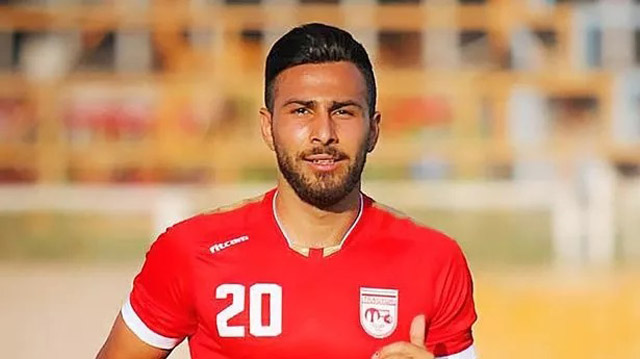News Flash
News Flash

PARIS, Jan 7, 2024 (BSS/AFP) - Iran stands accused by the West of playing a key role in unrest plaguing the Middle East, but twin bombings claimed by Islamic State group jihadists are a keen reminder of its own internal weaknesses, analysts say.
Wednesday's double suicide bombing left about 90 dead during a ceremony near the tomb of General Qasem Soleimani, on the fourth anniversary of the death of the revered former commander from powerful Iran's Revolutionary Guards.
Soleimani, killed in January 2020 by a US strike just after his arrival in Baghdad, had headed the Guards' foreign operations arm, the Quds Force, overseeing Iranian military operations across the Middle East.
Iran, sworn enemy of Israel, has established an "axis of Iranian resistance" in the region, relying on Lebanon's militant Hezbollah group, Shiite militias in Iraq and Syria, and Huthi rebels in Yemen.
"Iran does not need to mobilise a single Iranian soldier. Its proxies do the work," said Hasni Abidi, director of the Center for Studies and Research on the Arab and Mediterranean World in Geneva.
But while Iran has become "an important regional power with an enormous ability to do harm, it is internally fragile", he added.
Tehran has denied any role in the October 7 attacks when Iran-backed Hamas militants stormed across the Gaza border with Israel, in a bloody operation which left some 1,140 people dead, according to an AFP tally based on Israeli official figures.
The Islamic Republic has also rejected any notion that it has helped foment Huthi attacks against ships in a key Red Sea strait in the months since the outbreak of the Israel-Hamas war, which have badly disrupted international trade.
Wednesday's attack claimed by the IS jihadists is a potent reminder that Israel is not Tehran's only adversary, and it faces other, strong internal threats.
"The fact that the Islamic Republic remains vulnerable to terrorism and cannot protect its own citizens from a massive attack reveals serious security weaknesses," said Sanam Vakil, a director with the Chatham House think tank.
"The political and security establishment will certainly be seen to be culpable."
- Internal threats -
IS claimed its first attack in Iran in 2017, targeting the parliament building in Tehran and the mausoleum of Ayatollah Ruhollah Khomeini, the founder of the Islamic Republic. Some 17 people were killed and dozens wounded.
But Iran is also confronted by several separatist movements.
In the impoverished province of Sistan-Baluchistan on the border with Pakistan, unrest has involved drug-smuggling gangs, rebels from the Baluchi minority, and Sunni Muslim extremists.
In southwestern Khuzestan province, home to a large Arab minority, residents have long complained of marginalisation, and some groups have also carried out several attacks in recent years.
Iran has also announced in the past the arrests of alleged agents working for foreign countries, including Israel.
And it has accused Israel of sabotaging its nuclear sites and assassinating Iranian scientists.
Tehran's "inability to protect critical nuclear and military officials and facilities against covert operations" shows its "security forces have failed at (their) primary task", said Ali Vaez, director of the Iran Project and senior adviser at the International Crisis Group think tank.
Iran also faced months of street protests which erupted in September 2022 after the death of Kurdish Iranian woman Mahsa Amini.
She died in police custody three days after being arrested by the notorious morality police, who accused her of violating the country's strict dress code.
Outrage at her death led to unprecedented scenes of women burning their headscarves, and defiantly appearing in public with their hair uncovered.
"Focused on harassing women without hijab or cracking down on civil society, Iranian security forces clearly have failed at getting their priorities right," said Vaez.
Discontent has also grown amid economic hardship caused by years of international sanctions led by the United States, targeting key sectors such as oil.
According to an October report from the International Monetary Fund, inflation stood at a projected 47 percent for 2023.
Negotiations with world powers over limiting Iran's nuclear activities in exchange for lifting sanctions -- vital to kickstarting the economy -- have stalled.
"Securing the nuclear programme is an obsession for the Iranian regime," said Abidi.
The programme is a lifeline, but also a weakness as the "axis of resistance" carries the risk of an escalation which could lead to Israeli operations against Iran's nuclear sites.
Iran is reluctant to see the war "stirring a regional conflagration in which it would not be able to effectively protect its homeland", said Vaez.